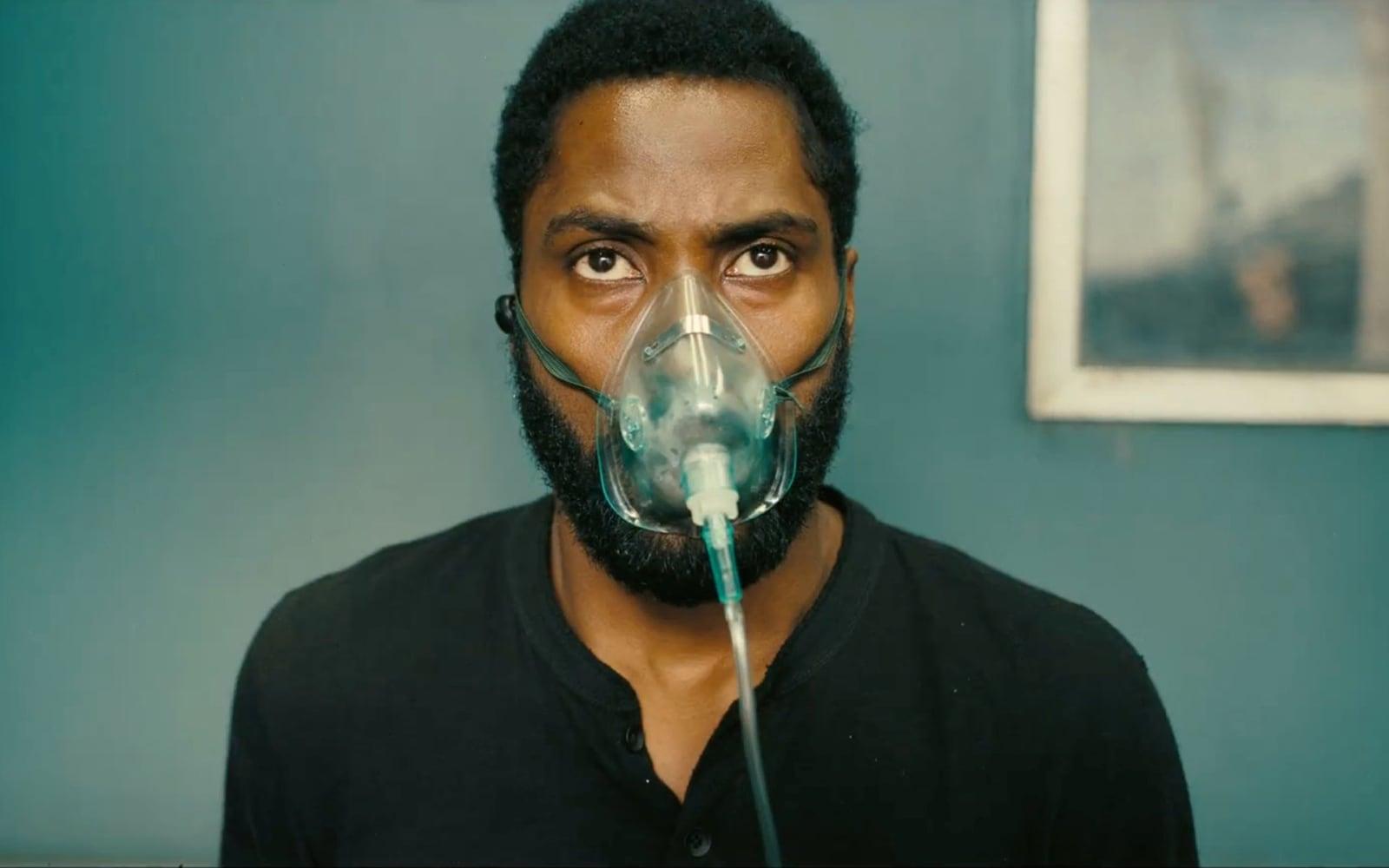Review Round-Up: Christopher Nolan’s Tenet

In a non-COVID world, a Christopher Nolan film would be a big deal. Nolan’s films — from his “Dark Knight” trilogy to cerebral sci-fi movies like Inception and Interstellar — are big budget spectacles par excellence, boasting massive set pieces, crazy stunts, and ingenious visual effects. Plot-wise, they can be a bit dodgy, but as cinematic thrill rides that don’t leave you feeling like you’ve lost a few IQ points, they’re topnotch. (In a simpler time, Tenet was one of my most anticipated movies of 2020.)
But in our current COVID-saturated world, Christopher Nolan’s Tenet is a really big deal. Not only has the film been shrouded in secrecy thanks to its cryptic trailers and marketing, but the massively expensive film (its budget is $200+ million) has been touted by some as the movie that will save the box office and theater industries.
Originally scheduled for a summer tentpole release of July 17, Tenet has been postponed several times due to the pandemic. Now, more than a month after its original release date, Tenet will debut next week on August 26 in places like Canada, France, Germany, and South Korea followed by gradual releases in the U.S. and China.
Critic reviews have already begun trickling in, with the general consensus being that Tenet is, in the words of Barry Hertz, “the most Christopher Nolan-y thing that Christopher Nolan has ever made.” I’ll leave it to you to decide whether that’s a good thing or not.
Barry Hertz, “Makes absolutely zero sense, but it’s one hell of a thrill ride”:
If you detest Christopher Nolan movies, you already know that Tenet is not for you. But if you love Christopher Nolan movies — if you can’t help but embrace his knack for slick spectacle at the same time that your throat tightens up with the realization of what chunky plot nonsense he is asking you to once again swallow — then Tenet is a divine offering from the movie gods in these troubled times. Myself, I’ll continue to pray at the altar of the almighty madman from Westminster, conscious of the fact that I have no one but myself to blame for such ludicrous zealotry.
Leslie Felperin, “A chilly, cerebral film… [that’s] easy to admire… but almost impossible to love”:
Like Xanax, Tenet’s title is a palindrome, spelled the same way backward and forward. That’s fitting for a story about technology that can “invert” people and things, making them capable of going back in time. And like Xanax, Tenet makes you feel floaty, mesmerized and, to an extent, soothed by its spectacle — but also so cloudy in the head that the only option is to relax and let it blow your mind around like a balloon, buffeted by seaside breezes and hot air.
Rosie Fletcher, “Rich, complicated, packed to the rafters with twists”:
Is it worth braving the cinema for? It depends how safe you feel of course, but this is certainly the biggest bang for your buck of the year so far. See it on the biggest screen you can with the very best sound system and immerse yourself in Ludwig Göransson’s pulsing, pounding score. The most important film of the year is a heavy weight to carry, and Tenet for the most part pulls it off. This may not be a perfect film but it could just be perfect cinema.
Matt Purslow, “A classic Nolan film in almost every way”:
Tenet is not Christopher Nolan’s masterpiece, but it is another thrilling entry into his canon. In a world where blockbuster cinema is dominated by franchises and sequels, it serves as an accomplished demonstration of the pleasures of unconnected and non-serialised original storytelling. But while it does tread new ground, Tenet is the ‘safest’ film from Christopher Nolan in some years.
Mike McCahill, “A humorless disappointment”:
What kind of picture is it? Big, certainly: IMAX-scaled, and a hefty 150 minutes even after a visibly ruthless edit. It’s clever, too — yes, the palindromic title has some narrative correlation — albeit in an exhausting, rather joyless way. As second comings go, Tenet is like witnessing a Sermon on the Mount preached by a savior who speaks exclusively in dour, drawn-out riddles. Any awe is flattened by follow-up questions.
Guy Lodge, “Grandly entertaining, time-slipping spectacle”:
The sheer meticulousness of Nolan’s grand-canvas action aesthetic is enthralling, as if to compensate for the stray loose threads and teasing paradoxes of his screenplay — or perhaps simply to underline that they don’t matter all that much. Tenet is no holy grail, but for all its stern, solemn posing, it’s dizzy, expensive, bang-up entertainment of both the old and new school.
Jessica Kiang, “[A] time-bending take on James Bond”:
[T]ake away the time-bending gimmick, and Tenet is a series of timidly generic set pieces: heists, car chases, bomb disposals, more heists. But then, the lie of Nolan’s career has been that he makes the traditionally teenage-boy-aimed blockbuster smarter and more adult, when what he really does is ennoble the teenage boy fixations many of us adults still cherish, creating vast, sizzling conceptual landscapes in which all anyone really does is crack safes and blow stuff up.
Watch the trailer for Tenet below.
